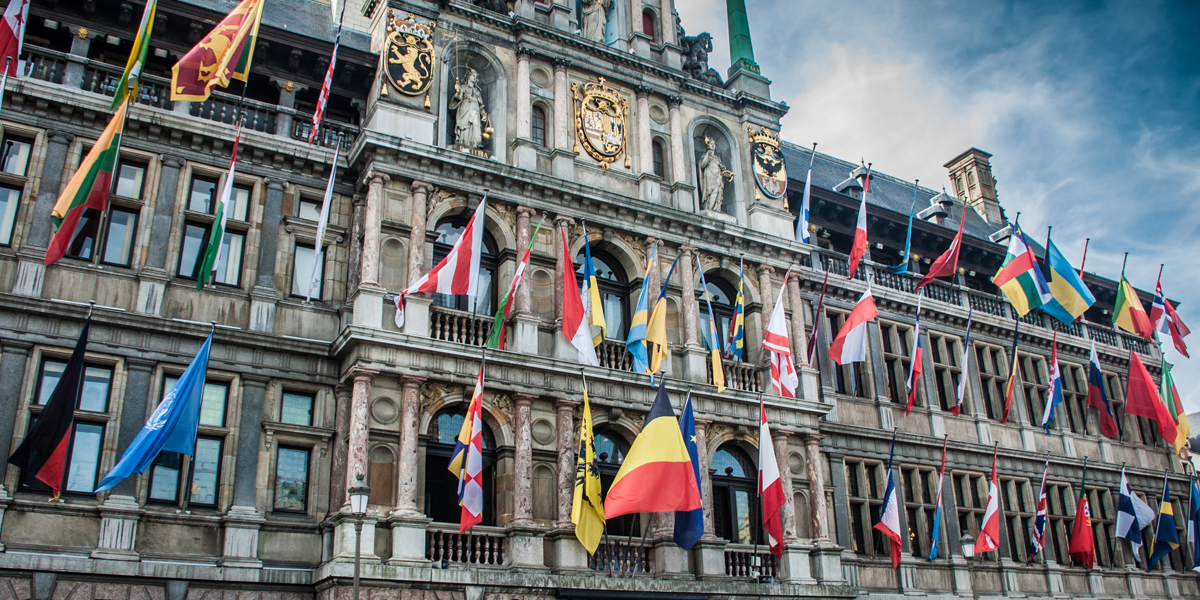View semester dates
2 years part-time

Tackle today's international political economy challenges, drawing on theories and ideas from history's great thinkers.
Year of entry: 2026 (September)
At the heart of this course are discussions on issues such as international development, global financial regulation and the organisation of production and trade.
Gain a deeper understanding of today's most pressing issues. Stand on the shoulders of history's intellectual giants, such as Karl Marx and Adam Smith. You'll learn about the different approaches to the study of international political economy. In the process, you'll discover new ways of exploring ideas.
Study across the full breadth of the subject area. Our modules cover a wide range of topics, from policy-making to public finances, and international trade to migration. You'll not only analyse traditional state-centred models of governance, but also works that encourage critical reflection on these approaches.
Craft an interdisciplinary perspective with a wide range of option modules. This course is highly customisable. You can tailor your degree to focus on the topics that interest you most. You'll also have the opportunity to study modules taught by other academic departments. This includes the Department of History and the School for Business and Society. By doing so, you'll have the chance to tackle problems from new and diverse perspectives.
Be supported by internationally-renowned experts. Our staff regularly contribute to news media and advise governments and institutions across the globe. Their research informs their teaching and spans the full breadth of the discipline. From classic thinkers to debates over contemporary trade policy and trans-national financial regulation.
You'll study 180 credits in total. The course consists of:
Taught modules will run throughout Semester 1 and 2, with your core module running in Semester 1 and option modules each semester. You'll complete your dissertation during the summer, supported by dissertation workshops in the early stages of writing.
You'll take the following core module:
You will also study five option modules. Examples can be found below.
Some option module combinations may not be possible. The options available to you will be confirmed after you begin your course.
Our modules may change to reflect the latest academic thinking and expertise of our staff, and in line with Department/School academic planning.
During the second semester and vacation you'll consolidate your interests in a dissertation on a topic of your choice.
Regular meetings with your assigned dissertation adviser will help guide you through the dissertation process, and support you in the exploration of your chosen topic. You'll also have the opportunity to present your dissertation at our research seminar presentation workshops.
Previous dissertation titles have included:
Every course at York is built on a distinctive set of learning outcomes. These will give you a clear understanding of what you will be able to accomplish at the end of the course and help you explain what you can offer employers. Our academics identify the knowledge, skills, and experiences you'll need upon graduation and then design the course to get you there.

I enjoyed the excellent learning environment and thought-provoking debates with my peers and teachers.
| Study mode | UK (home) | International and EU |
|---|---|---|
| Full-time (1 year) | £12,000 | £26,900 |
| Part-time (2 years) This is the year 1 fee. Fees for future years are subject to confirmation. |
£6,000 | £13,450 |
Students on a Student Visa are not currently permitted to study part-time at York.
For courses which are longer than one year, the tuition fees quoted are for the first year of study.
UK (home) or international fees? The level of fee that you will be asked to pay depends on whether you're classed as a UK (home) or international student. Check your fee status.
Find out more information about tuition fees and how to pay them.
You may incur some additional expenses for books, but these costs are optional as most of the texts you'll need are available in the University library. If the resources you need aren't available, you can borrow via inter-library loans and order new books to our library for free.
Discover your funding options to help with tuition fees and living costs.
We'll confirm more funding opportunities for students joining us in 2026/27 throughout the year.
If you've successfully completed an undergraduate degree at York you could be eligible for a 10% Masters fee discount.
We are pleased to work with Chevening Scholars to offer funding for our Masters programmes. Chevening Scholarships provide one year of fully-funded postgraduate study in the UK for international (including EU) students. The scholarships are open to early and mid-career professionals who have the potential to become future leaders.
You’ll work with world‐leading academics who’ll challenge you to think independently and excel in all that you do. Our approach to teaching will provide you with the knowledge, opportunities, and support you need to grow and succeed in a global workplace.
You'll learn through a combination of lectures, seminars and one-to-one supervision. We offer a personal approach to learning with much of our teaching conducted in small groups. Contact hours should be supplemented by eight to ten hours of independent study per module per week.
The Department of Politics and International Relations is located in Derwent College on Campus West. Most teaching takes place in Derwent College seminar rooms and in other locations across Campus West.
Our beautiful green campus offers a student-friendly setting in which to live and study, within easy reach of the action in the city centre. It's easy to get around campus - everything is within walking or pedalling distance, or you can always use the fast and frequent bus service.
You'll submit six essays of around 3,500 words: three at the end of Semester 1 and three at the end of Semester 2. Your final 12,000-word dissertation will be submitted at the beginning of September.
A York Politics degree is recognised by employers worldwide. Our students go on to careers in international organisations, the media, law, the civil service, politics, journalism and business.
The skills you'll acquire through the study of international political economy will leave you well prepared for further study or work in a wide range of sectors, from social and political research to journalism, marketing and HR.
| Qualification | Typical offer |
|---|---|
| Undergraduate degree | 2:2 or equivalent. We are willing to consider applicants with lower qualifications, particularly if you have high marks in relevant modules and/or appropriate professional experience. Additional information may be requested. |
| Other international qualifications | Equivalent qualifications from your country |
If English isn't your first language you may need to provide evidence of your English language ability. We accept the following qualifications:
| Qualification | Minimum requirement |
|---|---|
| IELTS (Academic and Indicator) | 6.5, minimum 6.0 in each component |
| Cambridge CEFR | B2 First: 176, with 169 in each component |
| Oxford ELLT | 7, minimum of 6 in each component |
| Oxford Test of English Advanced | 136, minimum 126 in each component |
| Duolingo | 120, minimum 105 in all other components |
| LanguageCert SELT | B2 with 33/50 in each component |
| LanguageCert Academic | 70 with a minimum of 65 in each component |
| Kaplan Test of English Language | 478-509, with 444-477 in all other components |
| Skills for English | B2: Merit overall, with Pass with Merit in each component |
| PTE Academic | 61, minimum 55 in each component |
| TOEFL | 87, minimum 21 in each component |
| Trinity ISE III | Merit in all requirements |
For more information see our postgraduate English language requirements.
You may be eligible for one of our pre-sessional English language courses. These courses will provide you with the level of English needed to meet the conditions of your offer.
The length of course you need to take depends on your current English language test scores and how much you need to improve to reach our English language requirements.
After you've accepted your offer to study at York, we'll confirm which pre-sessional course you should apply to via You@York.



